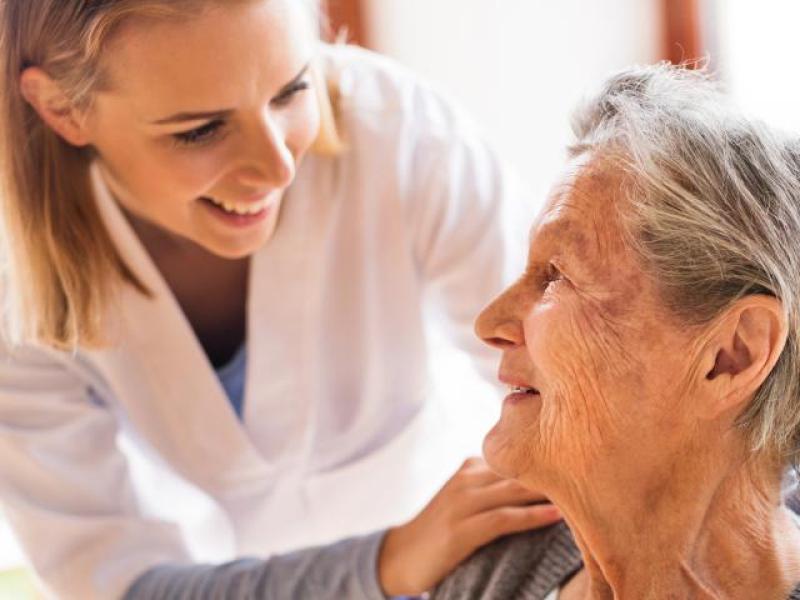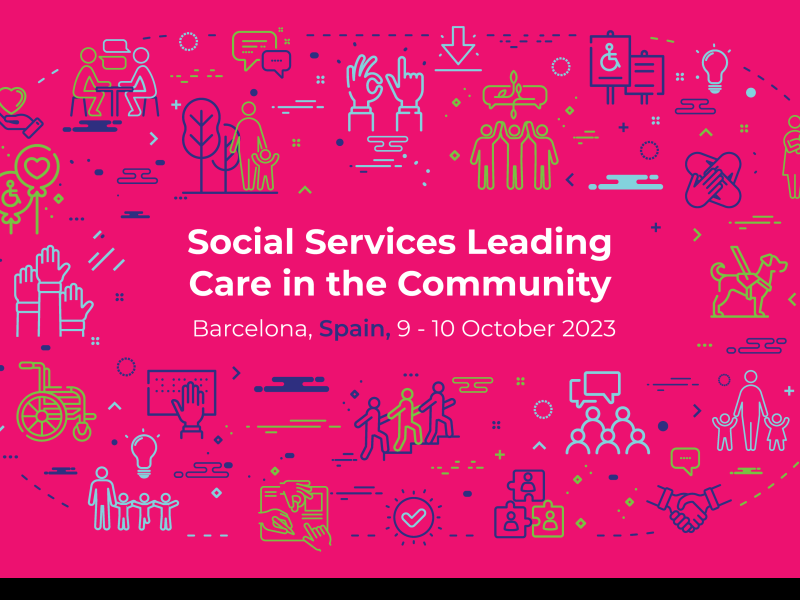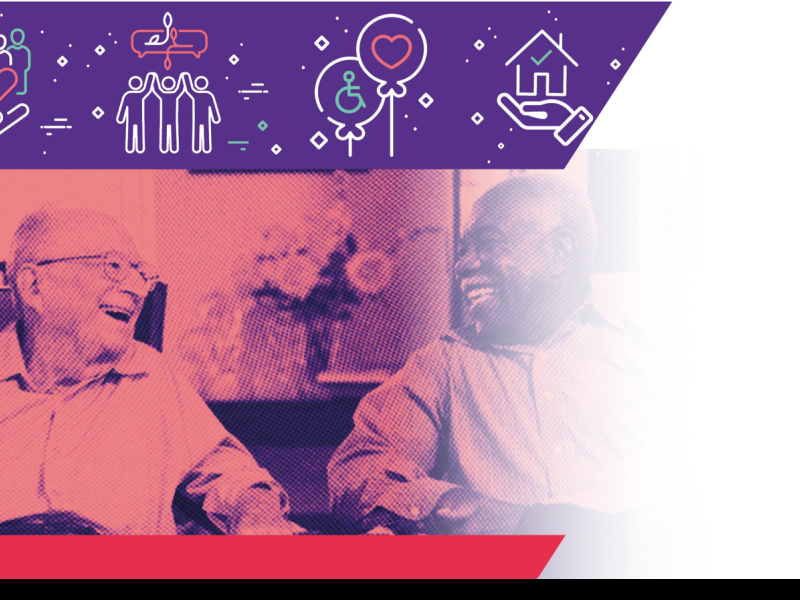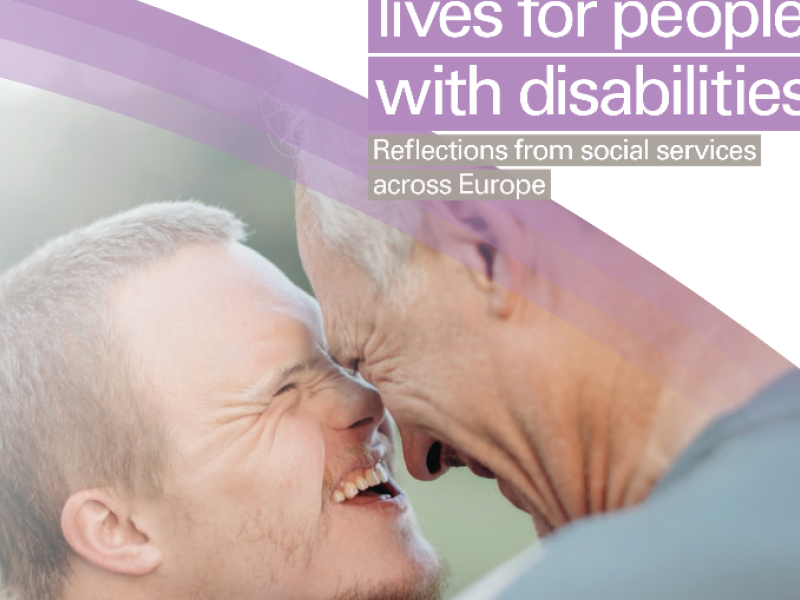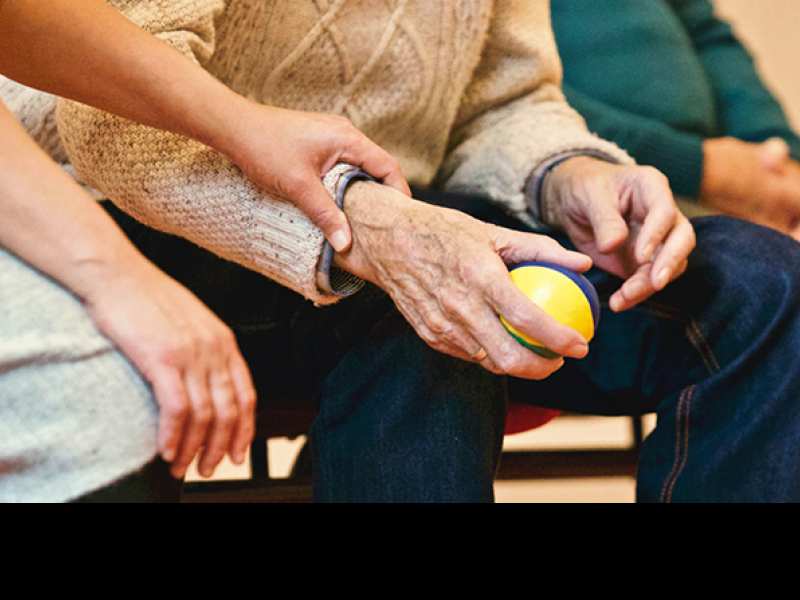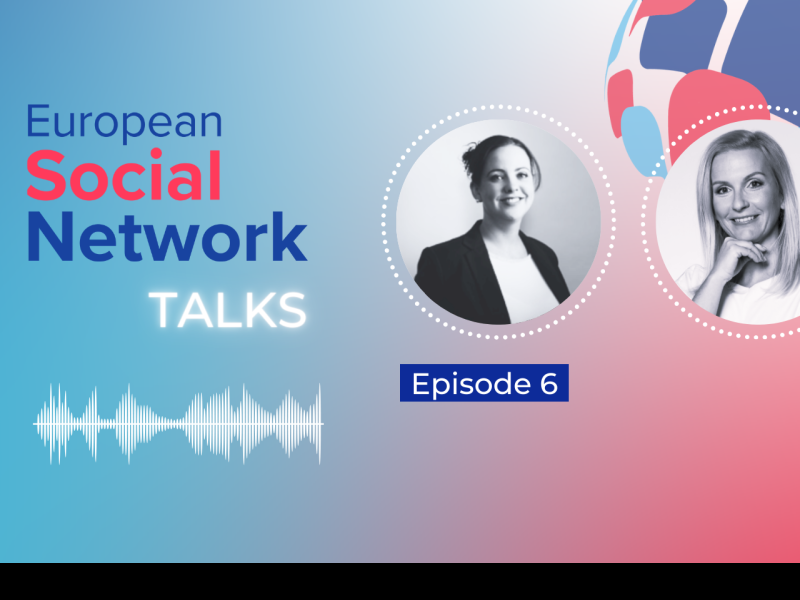Community care refers to any form of support and care provided in the local community enabling people to overcome or manage any condition, disability, or life difficulties they may face. Within community care, a key aspect of quality is ensuring the involvement of people using services. Co-production in social services refers to the delivery of public social services in which people using services are involved in planning, implementing, and evaluating them.
The transition from large residential facilities to community or family settings remains a challenge across Europe to varying degrees depending on the sector and the country. The UN Conventions on the Rights of Persons with Disabilities and the Rights of the Child enshrine the right to live in the community and family settings, hence we work with our members locally to ensure that these rights are implemented at local level, through the work of public social services.
Since 2008, we have been exploring the challenges of managing the transition from institutional to community-based services. We ran a working group until 2010 and produced a guide on how to approach community care.
Resources:
In 2010-2012, we ran a working group on mental health and worked across Europe implementing the European Pact for Mental Health and Wellbeing, shaping policy discussions with practice examples, and participating in the European Joint Action on Mental Health and Wellbeing with the aim to develop a European Framework for Action on Mental Health and Wellbeing.
Resources:
Between 2011 and 2012, we ran a training programme for sixteen policy makers and social managers from Central and Eastern Europe.
In 2014, we led a joint action of European networks from the European Expert Group (EEG) on the transition from institutional to community-based care and ran national seminars to train civil servants on the use of EU funds for community care.
In 2018, we published a toolkit on independent living and social inclusion for people with disabilities, which was the result of the work conducted by ESN working group on disability, set up in 2014.
Resources:
Building up from our work on community care, disability, and mental health, we organised a seminar in 2019 to analyse the participation of people using services in the planning, delivery and evaluation of social services as a key aspect of service quality.
Resources:
The 2015 seminar ‘Integrated Services: Working together to improve lives’ brought ESN members and external participants together to discuss local and regional models of integrated social services.
The working group on ‘Integrated Care and Support’ is currently running annual meetings where ESN members share their practices on the coordination of social services with other services. This includes for example multi-disciplinary teams, shared technology platforms or newly created integrated agencies.
Resources:




